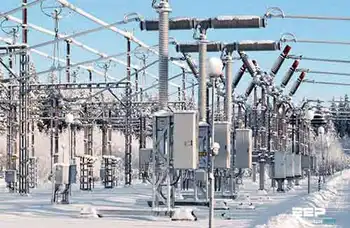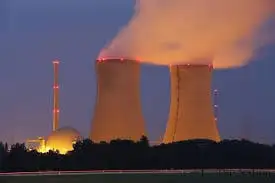France Diesel Prices at Pre-Ukraine Levels reflect energy market stabilization as supply chains adapt and subsidies help; easing fuel costs, inflation, and logistics burdens for households, transport firms, and the wider economy.
Key Points
They mark normalization as oil supply stabilizes, easing fuel costs and logistics expenses for consumers and firms.
✅ Lower transport and logistics operating costs
✅ Softer inflation and improved household budgets
✅ Market stabilization amid adjusted oil supply chains
In a significant development for French consumers and businesses alike, diesel prices in France have recently fallen back to levels last seen before the Ukrainian conflict began, mirroring European gas prices returning to pre-war levels across the region. This drop comes as a relief to many who have been grappling with volatile energy costs and their impact on the cost of living and business operations. The return to lower diesel prices is a noteworthy shift in the energy landscape, with implications for the French economy, transportation sector, and broader European market.
Context of Rising Diesel Prices
The onset of the Ukrainian conflict in early 2022 triggered a dramatic increase in global energy prices, including diesel. The conflict's disruption of supply chains, coupled with sanctions on Russian oil and gas exports, contributed to a steep rise in fuel prices across Europe, prompting the EU to weigh emergency electricity price measures to shield consumers. For France, this meant that diesel prices soared to unprecedented levels, putting significant pressure on consumers and businesses that rely heavily on diesel for transportation and logistics.
The impact was felt across various sectors. Transportation companies faced higher operational costs, which were often passed down to consumers in the form of increased prices for goods and services. Additionally, higher fuel costs contributed to broader inflationary pressures, with EU inflation hitting lower-income households hardest, affecting household budgets and overall economic stability.
Recent Price Trends and Market Adjustments
The recent decline in diesel prices in France is a welcome reversal from the peak levels experienced during the height of the conflict. Several factors have contributed to this price reduction. Firstly, there has been a stabilization of global oil markets as geopolitical tensions have somewhat eased and supply chains have adjusted to new realities. The gradual return of Russian oil to global markets, albeit under complex sanctions and trading arrangements, has also played a role in moderating prices.
Moreover, France's strategic reserves and diversified energy sources have helped cushion the impact of global price fluctuations. The French government has also implemented measures to stabilize energy prices, including subsidies and tax adjustments, and a new electricity pricing scheme to satisfy EU concerns, which have helped alleviate some of the financial pressure on consumers.
Implications for the French Economy
The return to pre-conflict diesel price levels brings several positive implications for the French economy. For consumers, the decrease in fuel prices means lower transportation costs, which can ease inflationary pressures and improve disposable income, and, alongside the EDF electricity price deal, reduce overall utility burdens for households. This is particularly beneficial for households with long commutes or those relying on diesel-powered vehicles.
For businesses, especially those in the transportation and logistics sectors, the drop in diesel prices translates into reduced operational costs. This can help lower the cost of goods and services, potentially leading to lower prices for consumers and improved profitability for businesses. In a broader sense, stabilized fuel prices can contribute to overall economic stability and growth, as lower energy costs can support consumer spending and business investment.
Environmental and Policy Considerations
While the decrease in diesel prices is advantageous in the short term, it also raises questions about long-term energy policy and environmental impact, with the recent crisis framed as a wake-up call for Europe to accelerate the shift away from fossil fuels. Diesel, as a fossil fuel, continues to pose environmental challenges, including greenhouse gas emissions and air pollution. The drop in prices might inadvertently discourage investments in cleaner energy alternatives, such as electric and hybrid vehicles, which are crucial for achieving long-term sustainability goals.
In response, there is a growing call for continued investment in renewable energy and energy efficiency measures. France has been actively pursuing policies to reduce its reliance on fossil fuels and increase the adoption of cleaner technologies, amid ongoing EU electricity reform debates with Germany. The government’s support for green energy initiatives and incentives for low-emission vehicles will be essential in balancing short-term benefits with long-term environmental objectives.
Conclusion
The recent return of French diesel prices to pre-Ukrainian conflict levels marks a significant shift in the energy market, offering relief to both consumers and businesses. While this decline brings immediate financial benefits and supports economic stability, it also underscores the ongoing need for a strategic approach to energy policy and environmental sustainability. As France navigates the evolving energy landscape, the focus will need to remain on fostering a transition towards cleaner energy sources while managing the economic and environmental impacts of fuel price fluctuations.
Related News












